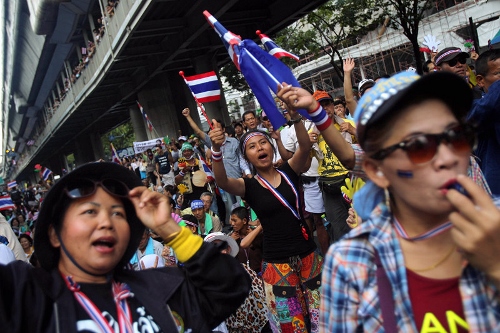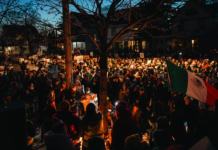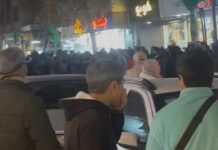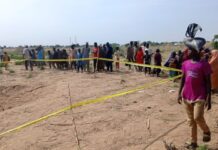Working class and rural poor need party of their own
Ravichandran, CWI Malaysia
The present political crisis in Thailand has been ongoing since the 2006 military coup which ousted Thaksin Shinawat – the billionaire tycoon turned politician. It has consisted of a now open, subdued clash between his party and its supporters and another wing of the political elite around the Democrat Party.
The crisis shows no sign of ending.
In this divide, the rural poor from the north and north-east of the country as well as some sections of the working class have generally supported Thaksin’s camp; most of the middle class as well as other sections of working class in Bangkok, and people from the southern part of the country are supporting the Democrats. This divide continues mainly due to a political vacuum. There is currently no force capable of uniting the rural poor and working class and genuinely representing their needs. This has given a free ride to different regimes representing the interests of the monarchy, the military and the capitalists to continuously exploit the desires of ordinary people.
Political crisis
The most recent conflict in Bangkok has been underway since October 2013. This time, the People’s Democratic Reform Committee (PDRC), which mostly consists of Democrat Party supporters and the former ‘Yellow-shirts’, planned to oust the government of the Pheu Thai (‘For Thais’) Party which has been led by Thaksin’s sister, Yingluck Shinawat since 2011. The PDRC accused Yingluck of attempting to push through an amnesty for people convicted for corruption and abuse of power that would allow Thaksin to return from his self-imposed exile. He has lived abroad since 2008 to avoid a prison sentence.
Under pressure from the growing street protests and occupations of parts of Bangkok, and the possibility of the actual overthrow of the government, Yingluck dissolved the government and called a new election for 2 February, confident her party would win. But the PDRC, which has the tacit support of the judiciary, the military and the monarchy, wants to avoid an election and the return of the pro-Thaksin party. They protested by occupying government offices and demanded an unelected ‘people’s council’ to draw up a new constitution instead of having an election. The military and police considered the protests peaceful so far and have cooperated with the organisers. Even so, at least ten people have been killed with sniper rifles and bombs at the protest sites, with both sides accusing each other of provocation.
On 21 January, Yingluck announced a state of emergency in Bangkok to last for 60 days. But this has not stopped the protest and conflicts. During early voting ahead of the elections, an anti-government protest leader was shot dead as protesters blocked voting stations in Bangkok.
But with the characters involved and the political orientation of the main forces, there is no way out. Elections on 2 February will mean the return of Yingluck as the Democrat Party is boycotting them. This will not end the protests of the PDRC. If the political clash between the two sides becomes uncontrollable, a military coup is possible or the intervention of the judiciary to annul the election. This would enrage the rural poor who envisage losing the small benefits they have accrued from a Shinawat government. Without a solution the conflict could turn ugly including the possibility of a civil war developing.
‘People’s Council’ to subjugate the masses
The main aim of the PDRC is to replace the elected government of Yingluck with an unelected government or ‘People’s Council’. According to PDRC spokesmen the role of this body would be to reform the constitution to basically end the political dominance of Thaksin which has operated since 2001. Based on the pro-capitalist and conservative character of the PDRC, a ‘people’s council’ would represent the agenda of big business, that is linked to the army and the monarchy, by weakening the economic domination of the crony capitalists that emerged around Thaksin during his time in office.
This, the PDRC agenda, is not going to satisfy the supporters of Thaksin – the ‘redshirts’ – who are mostly poor farmers based in the rural areas. So far, they have launched protests outside Bangkok and a Facebook campaign to support the election called by Yingluck.
The constitutional monarchy has allowed elements of parliamentary democracy since the 1930s, but all that was created was brutal regimes – either through elections or military coups – that have continuously attacked the welfare and democratic rights of poor farmers/rural people, the working class, young people and students as well as denying the right of self-determination to the Muslim minority in the southern region of the country.
Neither did the regime under Thaksin honestly solve the social and economic needs of the working class and rural poor, using only a populist and opportunist agenda as bait for the votes of the poor to satisfy their desire for political power. In almost six years in government, Thaksin and his cronies increased their wealth manifold and Thaksin is at present one of the 10 richest Thais.
Only through the setting up of a revolutionary constituent assembly with democratically elected representatives of the working class, poor farmers and others in society, a real political solution that meets their needs and welfare would be realised, not the bogus ‘people’s council’ of the PDRC.
Marginalised rural and urban poor
The fears of Thaksin’s poor and rural supporters has been confirmed by the PDRC which says that when the ‘People’s Council’ takes power, it will end the populist agenda of Thaksin, which includes universal health care coverage and an agrarian debt moratorium programme.
In Thai history, under the military regimes and various pro-capitalist governments, during the pre-boom period (1968-1986) and the boom period (1987-1996), Thai society experienced widespread inequality, and the poor farmers in the rural areas were almost completely left out of the massive economic development in urban areas.
Rather than initiating independent policies representing working class and rural poor people, the ‘Assembly of the Poor’ – a coalition of rural villagers and urban slum dwellers which built up authority among rural and urban poor during the harsh economic crisis of the 1990s – supported Thaksin. Merely focusing on ‘lesser evilism’, they failed to understand the capitalist character of Thaksin’s agenda, masked with populist gestures. Thaksin’s party distinguished themselves from all other parties in Thai history as none of them had ever implemented such populist measures before.
The Thai economy is now very much dependent on the industrial and manufacturing activity in the urban areas such as Bangkok, although more than 60 percent of the population is still involved in different agricultural activities. This means that most of the wealth of Thai capitalism is created by the working class in the urban area. The working class in Bangkok is also under attack from the neo-liberal agenda of the Yingluck regime.
Working class leadership
Capitalist media and the leaders of foreign countries have proposed that the PDRC should negotiate with the Yingluck government to end the political deadlock. They fear that an unelected ‘people’s council’ or a military takeover would not end the deadlock, and this could only worsen the economy of the country and affect big business. This conflict is between two parties of capitalism that compete for political power. They have no genuine concern about the poor or ordinary people, and just use them as pawns in their game.
The poor farmers and the working class have common exploiters, the capitalists. They should ally themselves to build a force that can challenge the rule of capitalism. The alliance could also attract the support of students, middle class people and others in society that are also looking for a genuine change in the system. Such a party should base itself on a socialist programme as the alternative to the agenda of the capitalists of both ‘yellow’ and ‘red’ camps.





